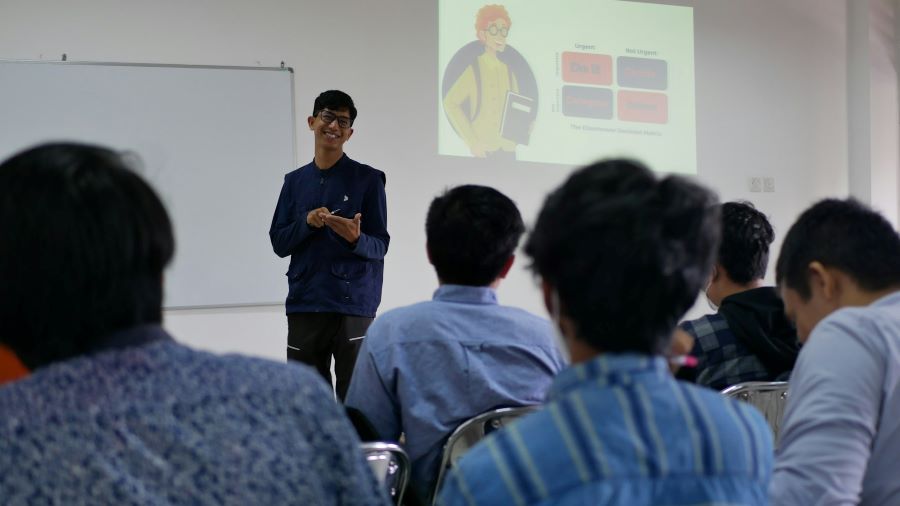Empowering Career Success: How Vocational Training Shapes Future Leaders

What is vocational training? Basically, it equips individuals with practical skills that are tailored for specific careers. It focuses on hands-on learning and direct application.
Programmes often target industries like:
- Healthcare.
- Trades (such as plumbing and carpentry).
- Technology.
By aligning with workforce demands, vocational training prepares people to enter jobs confidently.
And, as we shall see, vocational training can help to shape future leaders…
Building Real-World Skills for Tangible Impact
Vocational training centres on practical experience. So, it prepares individuals to face real-world challenges.
This type of training introduces hands-on tasks and industry-specific tools. (Therefore, it bridges the gap between learning and doing.)
Whether you attend trade schools Lewisburg PA or participate in local apprenticeship programmes in Sheffield, South Yorkshire, vocational education focuses on developing immediate expertise that employers seek.
Key skills could include:
- Operating industry-standard machinery or equipment that’s relevant to specific trades.
- Understanding workplace protocols like safety procedures and compliance standards.
- Mastering soft skills such as time management and communication under pressure.
These foundations help mould professionals who are ready to lead teams from the ground up – with confidence built on competence.
Cultivating Confidence Through Hands-On Learning
Confidence grows when people see their efforts yield tangible results. Vocational training builds this self-assurance. How? By immersing learners in real scenarios.
Working through challenges fosters resilience and problem-solving abilities, which are qualities that are essential for leadership roles.
Benefits of hands-on learning? They include:
- Gaining immediate feedback from mentors or instructors.
- Becoming comfortable using specific tools and techniques.
- Experiencing success through task completion.
Encouraging Adaptability in Changing Job Markets
Vocational training often equips individuals with the ability to adapt. And as industries evolve, flexibility becomes critical for success.
Programmes focus on teaching versatile skills that apply across various roles and sectors.
Adaptability stems from exposure to real-world scenarios where challenges often demand quick thinking and resourcefulness. Vocational education fosters these traits. How? By encouraging problem-solving within diverse situations.
Key elements that build adaptability include:
- Learning transferable skills.
- Gaining experience with emerging technologies.
By embracing adaptability through vocational learning, future leaders can become better prepared to navigate uncertain markets confidently.
Strengthening Leadership Qualities from Day One
Vocational learners are encouraged to take charge of tasks and make informed choices in realistic settings. These experiences develop core attributes that leaders are sure to rely on when guiding others.
Core ways vocational training builds leadership? They include:
- Assigning project-based responsibilities that simulate those all-important real-world management scenarios.
- Teaching effective communication strategies for workplace collaboration.
- Emphasising accountability through individual performance evaluations.
With this approach, vocational education produces future leaders who can lead teams confidently.
Providing Clear Career Pathways with Practical Guidance
Vocational training offers clarity for those who are unsure about their professional future. It maps out tangible career options tied to specific skills and industries.
This guidance ensures individuals can pursue goals that align with both personal interests and job market demands.
Practical elements? They include:
- Industry placements or internships.
- Access to mentorships.
- Step-by-step development plans.
- Workshops focusing on CV building, interview techniques, and professional networking skills.
Vocational training helps individuals to be prepared to become confident decision-makers who lead with purpose in any role they undertake!
Promoting Collaboration and Team-Oriented Mindsets
Working with peers to complete tasks not only sharpens technical skills but also builds interpersonal abilities that define effective leaders.
Trainees will understand how individual contributions strengthen overall outcomes. This prepares future leaders to value team input.
Collaboration-focused aspects include these:
- Group projects requiring joint problem-solving and resource sharing.
- Role-based exercises that mimic workplace dynamics.
- Peer feedback sessions.
Wrapping Up
Vocational training shapes future leaders by:
- Providing practical skills.
- Fostering adaptability.
- Instilling confidence.
It builds strong foundations for leadership, equipping individuals to navigate challenges and inspire others!









































